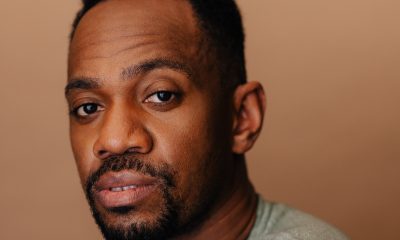Arts & Entertainment
Unequivocally gay
Oregon-based theater vet brings collaboration to Arena
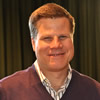
‘Equivocation’
Through Jan. 1
Arena Stage
1101 Sixth Street, SW
$40-$80
202-488-3300
arenastage.org
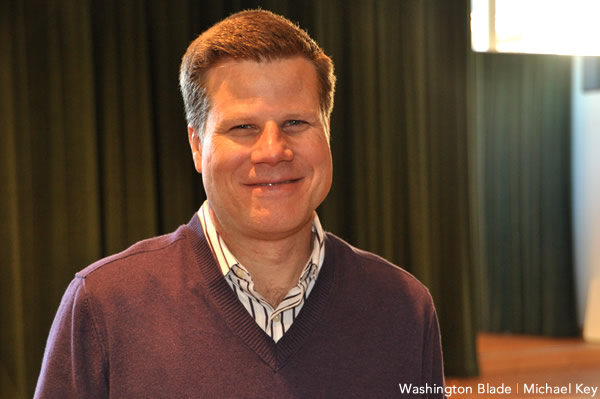
Bill Rauch, director of the Oregon Shakespeare Festival, brought his company’s ‘Equivocation’ to Washington for a collaboration with Arena Stage. (Blade photo by Michael Key)
Bill Rauch openly admits he has a gay agenda.
“Of course I do,” he says. “As a gay man I want to see LGBT lives reflected on the stage. For me it’s all part of the human experience.”
While “Equivocation” — the political thriller he’s brought to Arena Stage from the Tony Award-winning Oregon Shakespeare Festival where Rauch is artistic director — features a gay British monarch, it was the work’s clarity, force and theatricality that first caught his attention. “It’s a period piece that’s entirely contemporary in language and the way it explores the overlapping of politics, religion and art. As I read the script for the first time my heart began pounding harder and harder. That doesn’t happen very often.”
Set in 1604 London, playwright Bill Cain’s smart and entertaining play follows William “Shagspeare” and his theatrical troupe as they struggle to complete a royal commission about the Gunpowder Plot that both pleases King James I and isn’t entirely untrue. With six actors playing about 30 roles in several plays within the play, this darkly funny backstage story covers a lot of relevant territory including power, politics, religion, national security, terrorism, theater, father/daughter relationships, friendships and honesty.
A first-time collaboration between the Festival and Arena, “Equivocation” reunites the top-notch original cast (lead by Broadway actor Anthony Heald as Shag) and creative team from its 2009 world premiere production.
MORE IN THE BLADE: DUELING OTHELLOS
The last time Rauch worked at Arena was in 1993 when he staged “A Community Carol,” an inner-city take on the Dickens’ Christmas classic featuring a large cast of professional and nonprofessional local actors. Though the venture was risky, it proved both a critical and commercial success. It was also indicative of the work Rauch was doing with his then-troupe Cornerstone Theater Company (which co-produced the show).
Rauch attended Harvard where he majored in English and was heavily involved in campus theatrics. Shortly after graduating, he and some college friends including his now husband, actor/director Christopher Liam Moore, founded Cornerstone in 1986. Initially operating out of Rauch’s parents’ home in Northern Virginia, the company eventually traveled the country creating theater by collaborating with locals, typically in small communities. Since 1992, the company has been based in Los Angeles.
“It was a great run, but after 20 years with Cornerstone I was ready to move on. I became curious to know another kind of bigger theater. (Based in Ashland, Ore., the Festival is among the oldest and largest professional non-profit theaters in the nation and operates on a $30 million budget). He was named artistic director in 2007.
At the Festival, Rauch has gained a reputation for expanding the company’s scope, taking artistic chances and being an all-around nice guy. His staging efforts include an urban America 1970s-set “Measure for Measure.” The male actor who played Mistress Overdone, the brothel madam, portrayed her as a preoperative transsexual. She lands in jail where she is stripped naked and revealed to be a biological male. “It was an intense moment in the play,” he says. “For the character it’s a shameful experience. Some of the audience laughed. Others cried. There was a lot of discomfort.”
MORE IN THE BLADE: A NIGHT TO REMEMBER
Together 27 years, Rauch and Moore (who acts and directs at the Festival) have two sons, aged 11 and 6. They’re entirely different, says Rauch. The older loves sports and cars. He’s “all boy” (a term that Rauch loathes but deems apt nonetheless) and the younger is very much into everything princess. In fact, he regularly wore a princess gown to pre-school for two years. Both fathers are perfectly happy to allow their kids to express themselves in whatever way they choose, and fortunately, Rauch notes, Ashland is a progressive town.
Part of what drew Rauch to Arena is his longtime friendship with artistic director Molly Smith. In ways, he’s viewed her career trajectory — from small innovative company to important regional theater — as a template for his own. For some time, the pair had discussed Rauch brining something from the Festival to D.C.
“While I would have been proud to bring any of our productions to Arena, I’m glad it’s ‘Equivocation.’ The play is bottomless. There’s always something more to uncover. And it’s very political — that’s what makes it an especially good fit for Washington.”
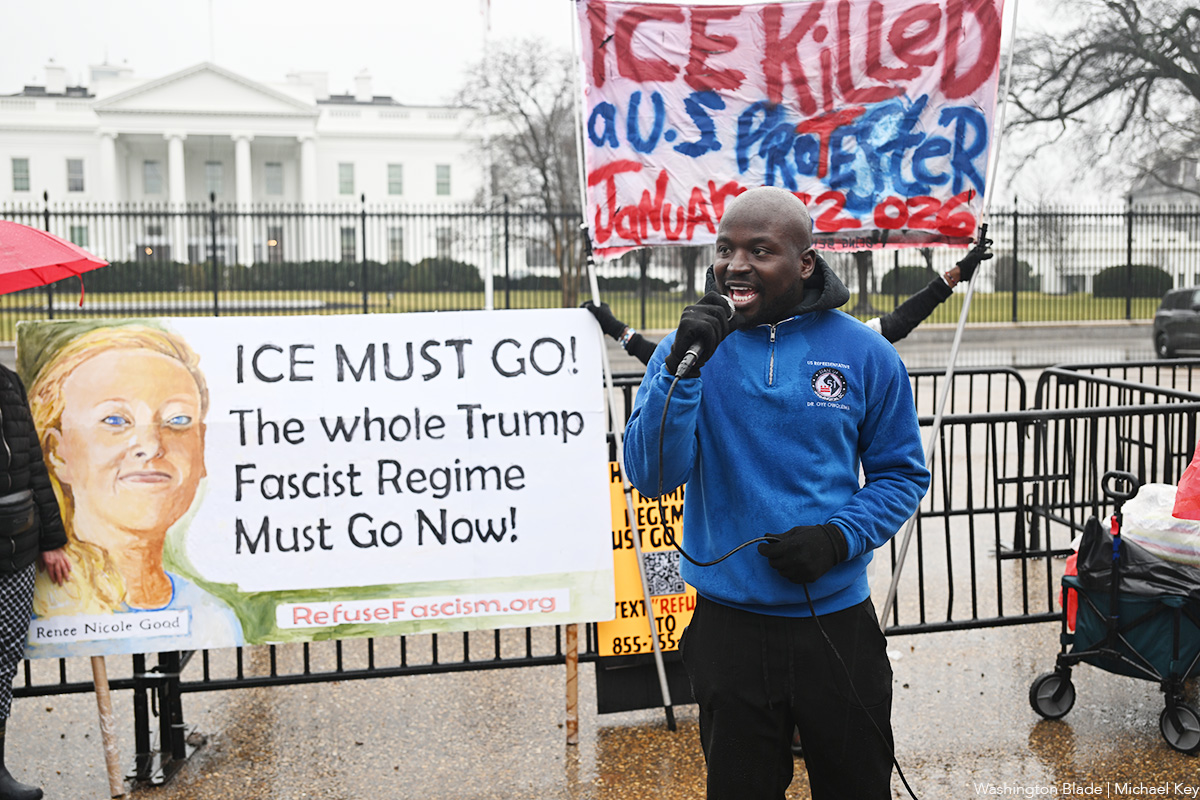
A protest was held outside of the White House on Saturday following the killing of Renee Nicole Good by a U.S. Immigration and Customs Enforcement agent in Minneapolis. Across the Potomac, picketers held signs calling for “Justice for Renee” in Tysons, Va.
Demonstrations were held in cities and towns across the country, according to multiple reports. A march was held yesterday in Washington, D.C., as the Blade reported. Further demonstrations are planned for tomorrow.
(Washington Blade photos by Michael Key)
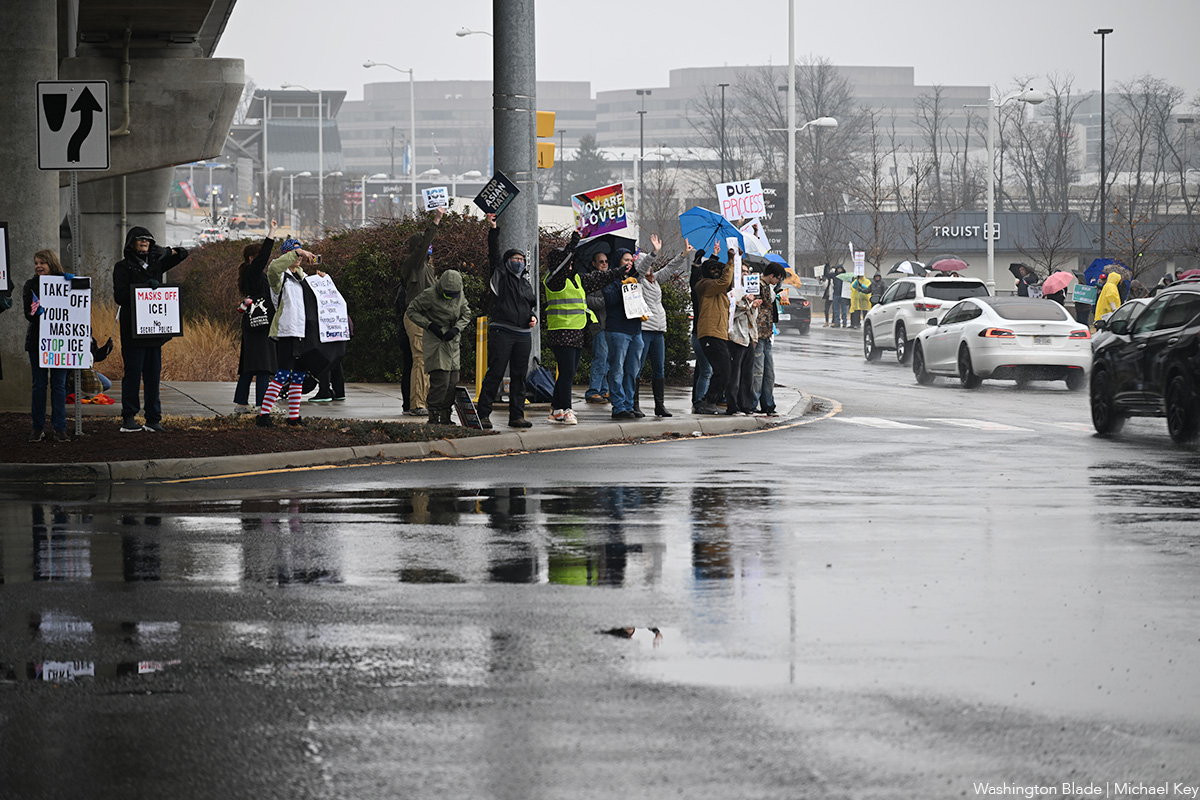
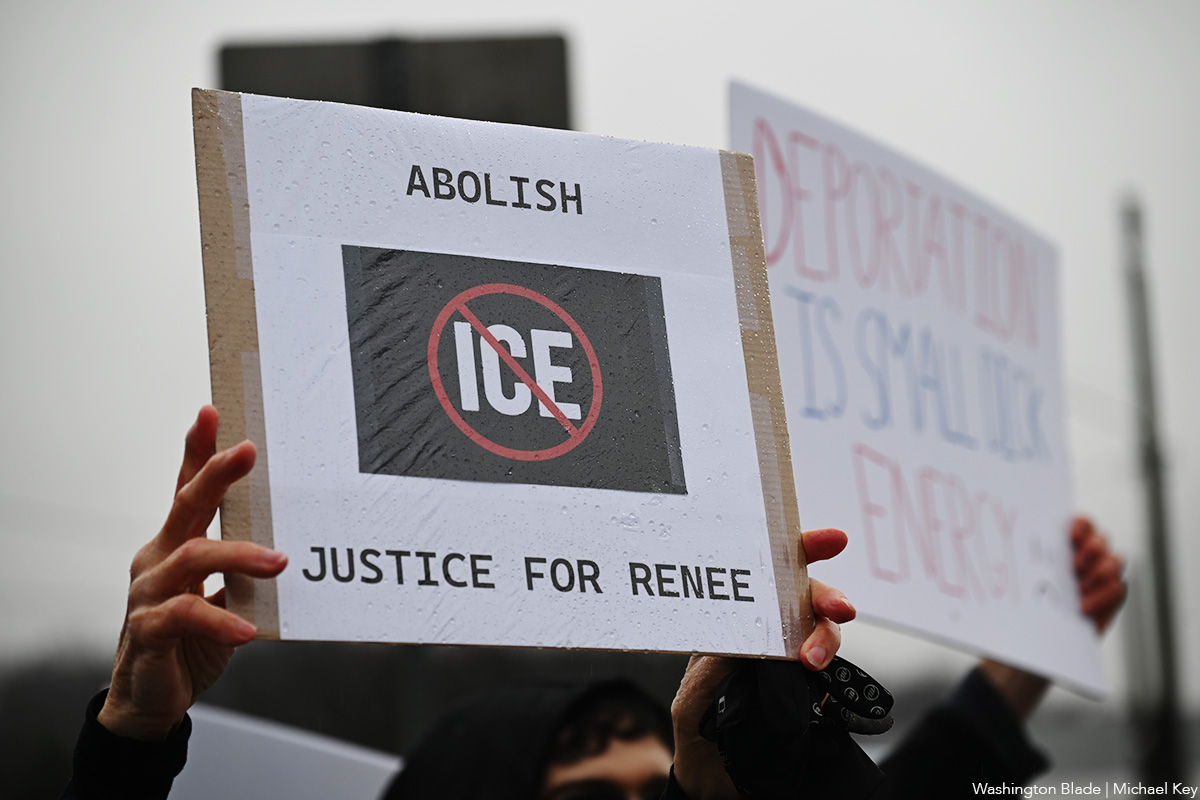
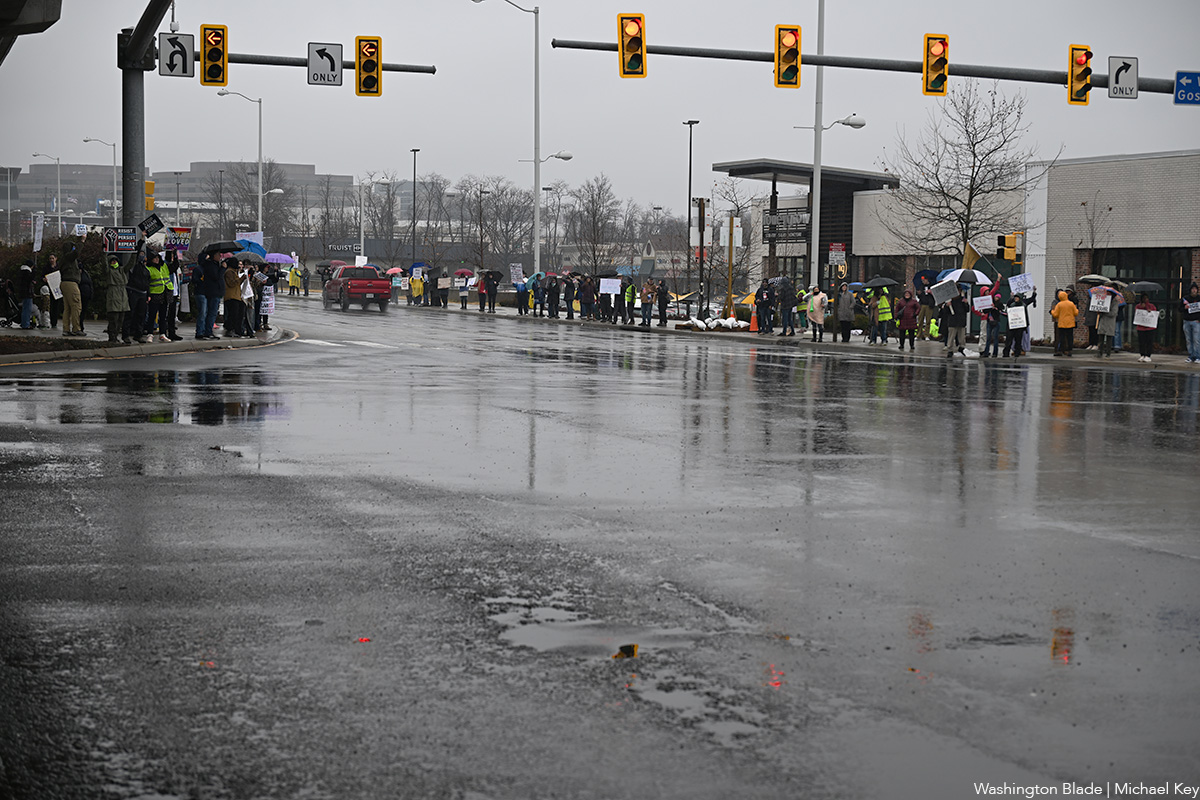
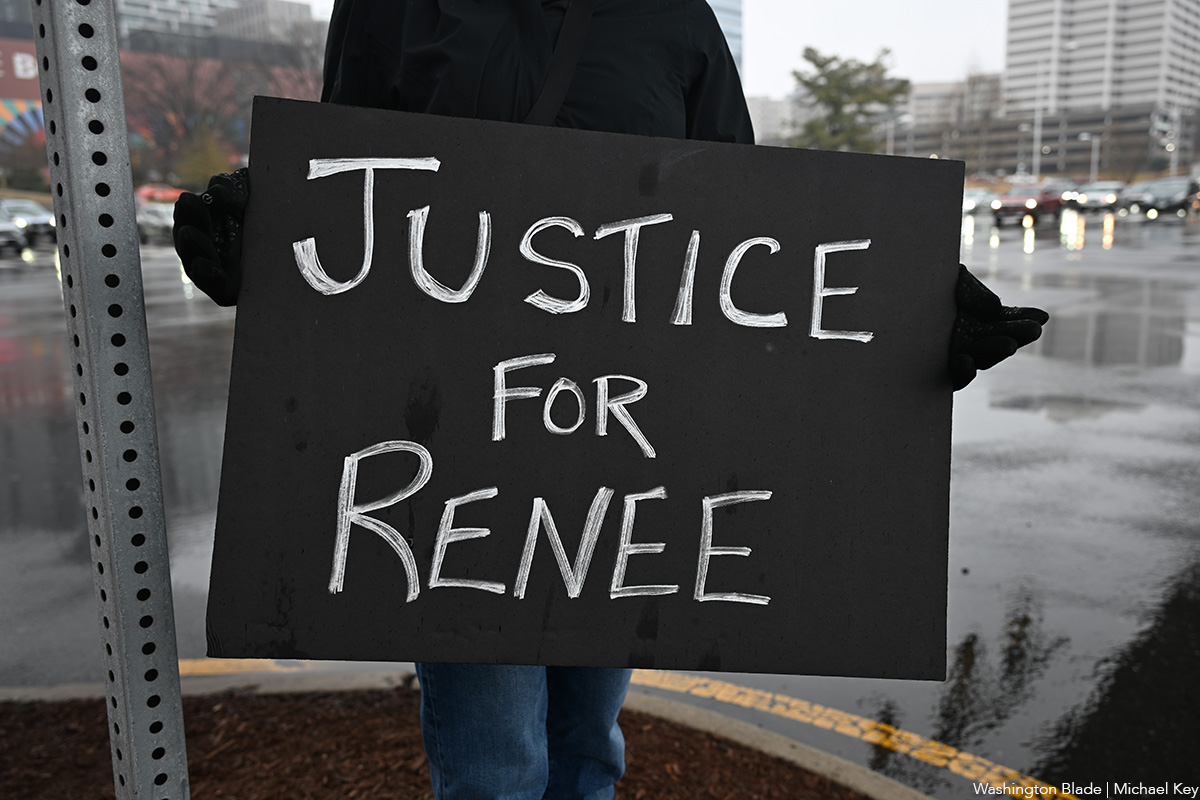
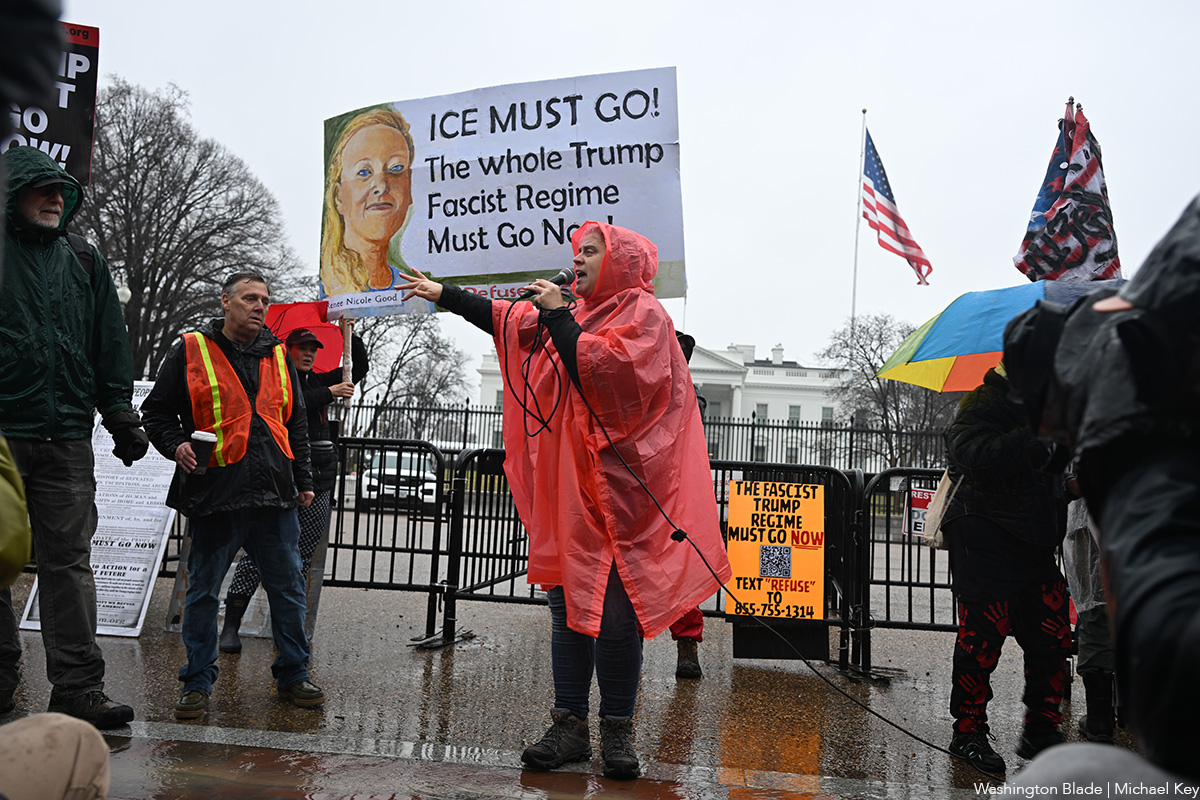
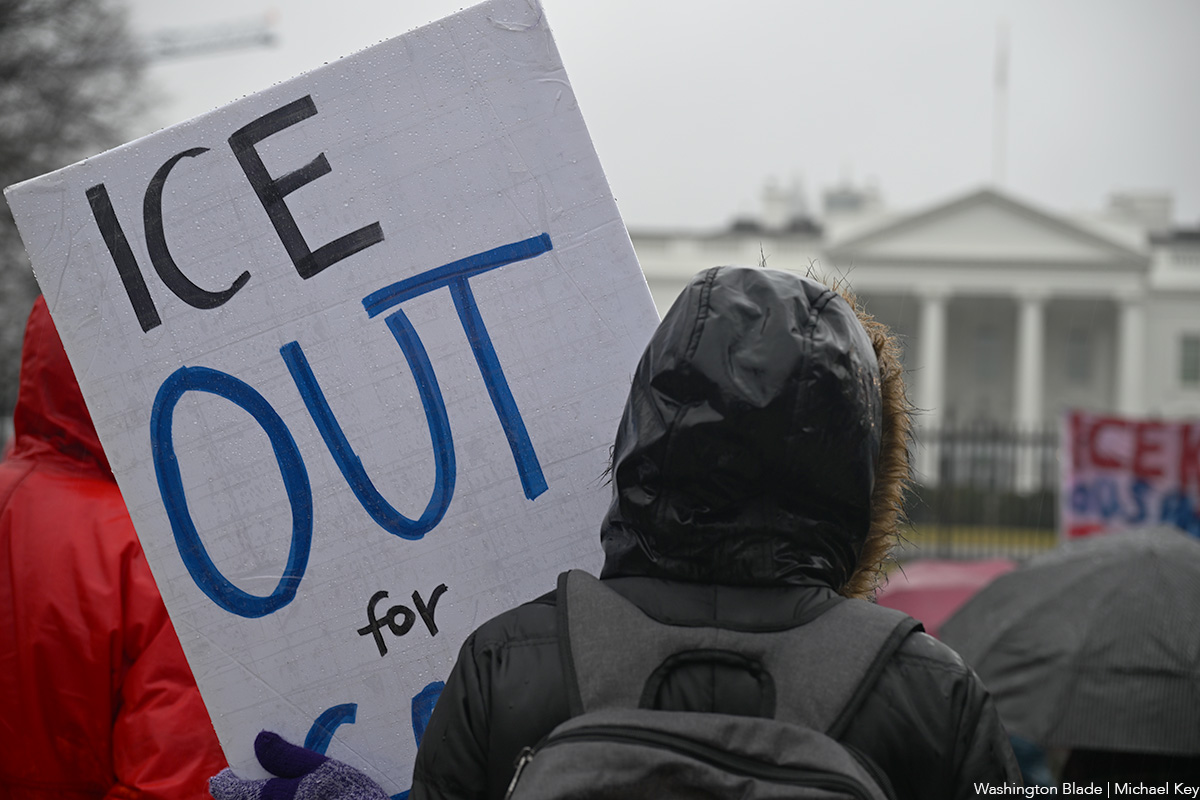
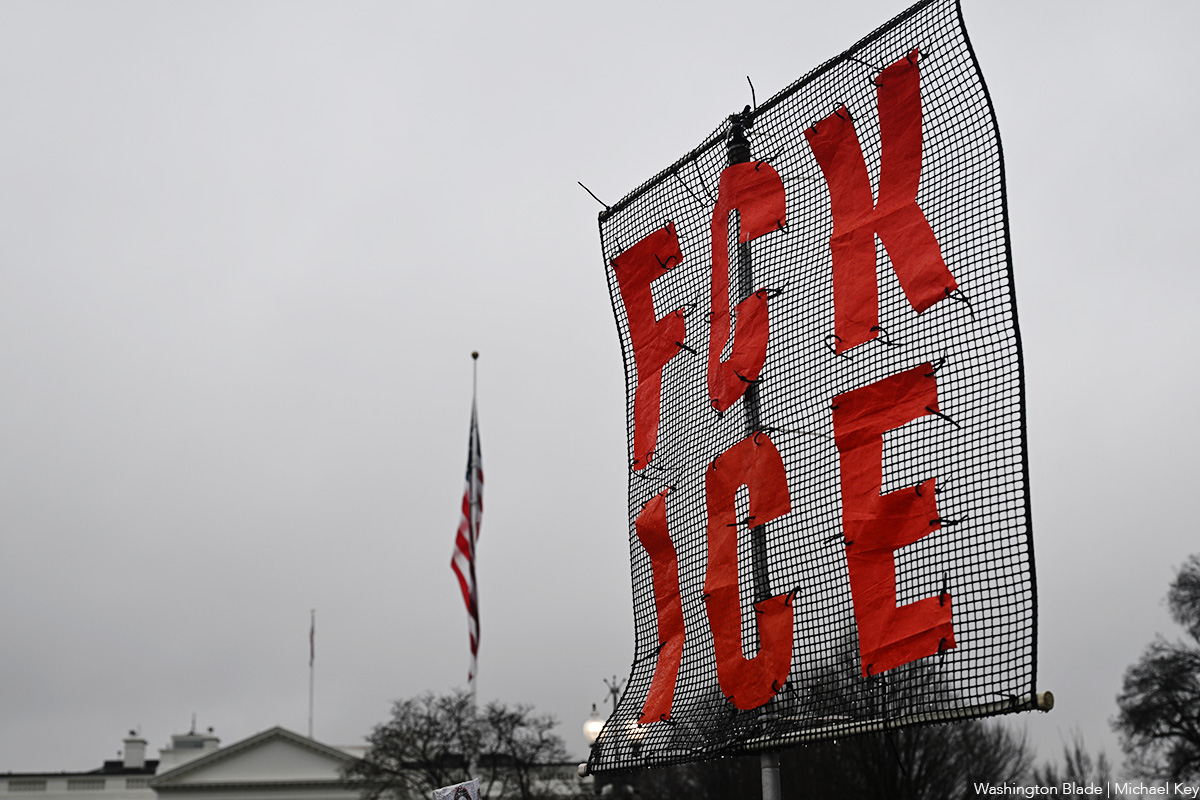
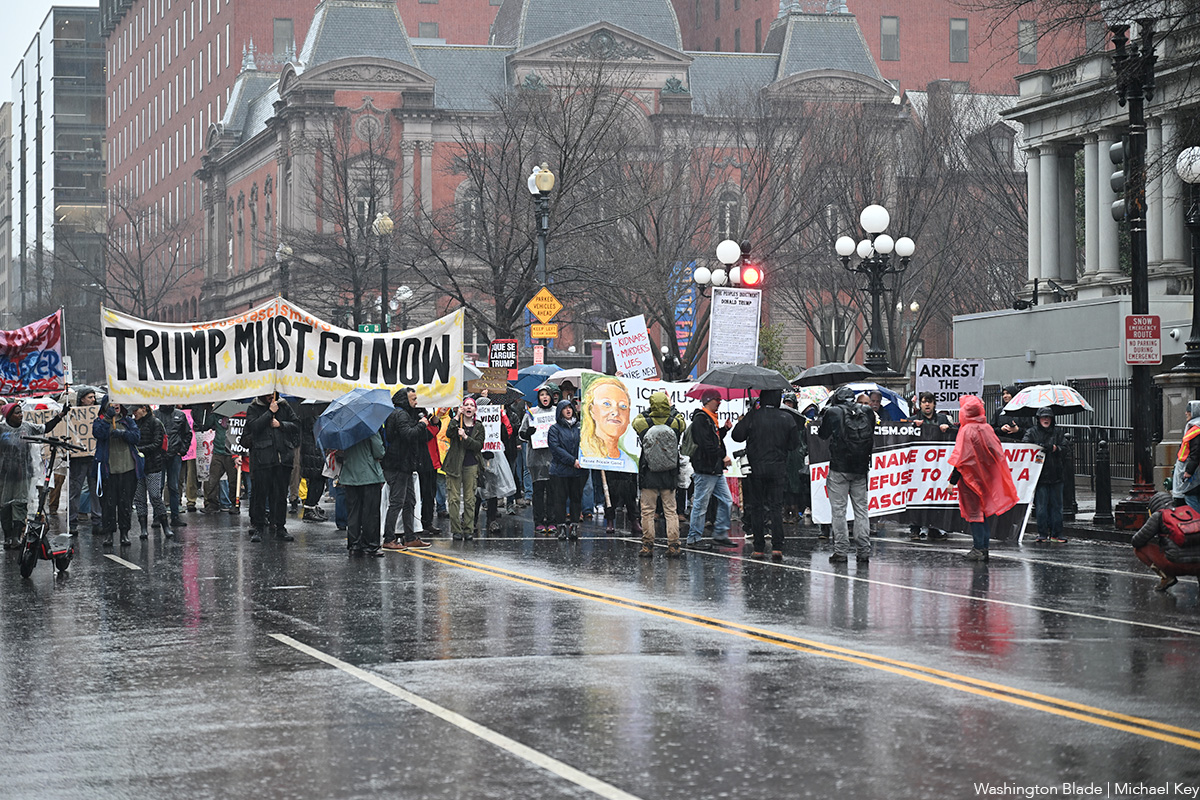

Books
Feminist fiction fans will love ‘Bog Queen’
A wonderful tale of druids, warriors, scheming kings, and a scientist
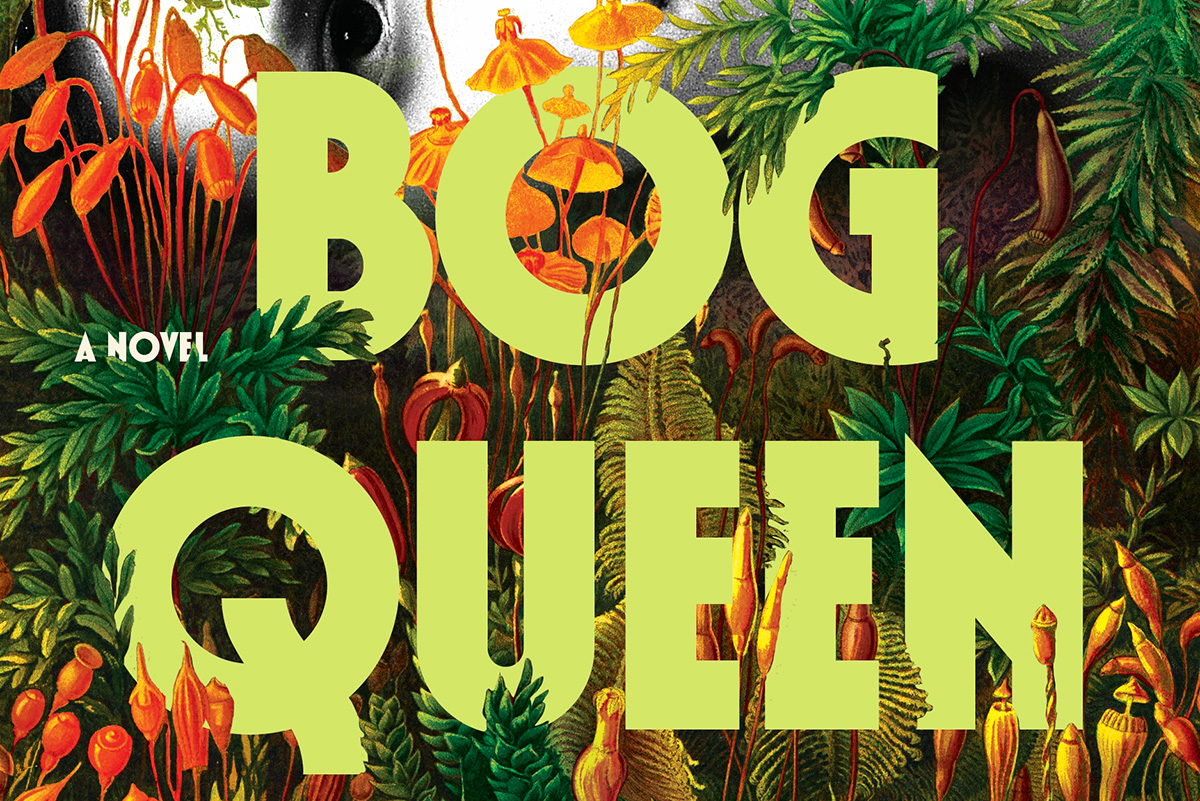
‘Bog Queen’
By Anna North
c.2025, Bloomsbury
$28.99/288 pages
Consider: lost and found.
The first one is miserable – whatever you need or want is gone, maybe for good. The second one can be joyful, a celebration of great relief and a reminder to look in the same spot next time you need that which you first lost. Loss hurts. But as in the new novel, “Bog Queen” by Anna North, discovery isn’t always without pain.

He’d always stuck to the story.
In 1961, or so he claimed, Isabel Navarro argued with her husband, as they had many times. At one point, she stalked out. Done. Gone, but there was always doubt – and now it seemed he’d been lying for decades: when peat cutters discovered the body of a young woman near his home in northwest England, Navarro finally admitted that he’d killed Isabel and dumped her corpse into a bog.
Officials prepared to charge him.
But again, that doubt. The body, as forensic anthropologist Agnes Lundstrom discovered rather quickly, was not that of Isabel. This bog woman had nearly healed wounds and her head showed old skull fractures. Her skin glowed yellow from decaying moss that her body had steeped in. No, the corpse in the bog was not from a half-century ago.
She was roughly 2,000 years old.
But who was the woman from the bog? Knowing more about her would’ve been a nice distraction for Agnes; she’d left America to move to England, left her father and a man she might have loved once, with the hope that her life could be different. She disliked solitude but she felt awkward around people, including the environmental activists, politicians, and others surrounding the discovery of the Iron Age corpse.
Was the woman beloved? Agnes could tell that she’d obviously been well cared-for, and relatively healthy despite the injuries she’d sustained. If there were any artifacts left in the bog, Agnes would have the answers she wanted. If only Isabel’s family, the activists, and authorities could come together and grant her more time.
Fortunately, that’s what you get inside “Bog Queen”: time, spanning from the Iron Age and the story of a young, inexperienced druid who’s hoping to forge ties with a southern kingdom; to 2018, the year in which the modern portion of this book is set.
Yes, you get both.
Yes, you’ll devour them.
Taking parts of a true story, author Anna North spins a wonderful tale of druids, vengeful warriors, scheming kings, and a scientist who’s as much of a genius as she is a nerd. The tale of the two women swings back and forth between chapters and eras, mixed with female strength and twenty-first century concerns. Even better, these perfectly mixed parts are occasionally joined by a third entity that adds a delicious note of darkness, as if whatever happens can be erased in a moment.
Nah, don’t even think about resisting.
If you’re a fan of feminist fiction, science, or novels featuring kings, druids, and Celtic history, don’t wait. “Bog Queen” is your book. Look. You’ll be glad you found it.
Movies
A Shakespearean tragedy comes to life in exquisite ‘Hamnet’
Chloe Zhao’s devastating movie a touchstone for the ages
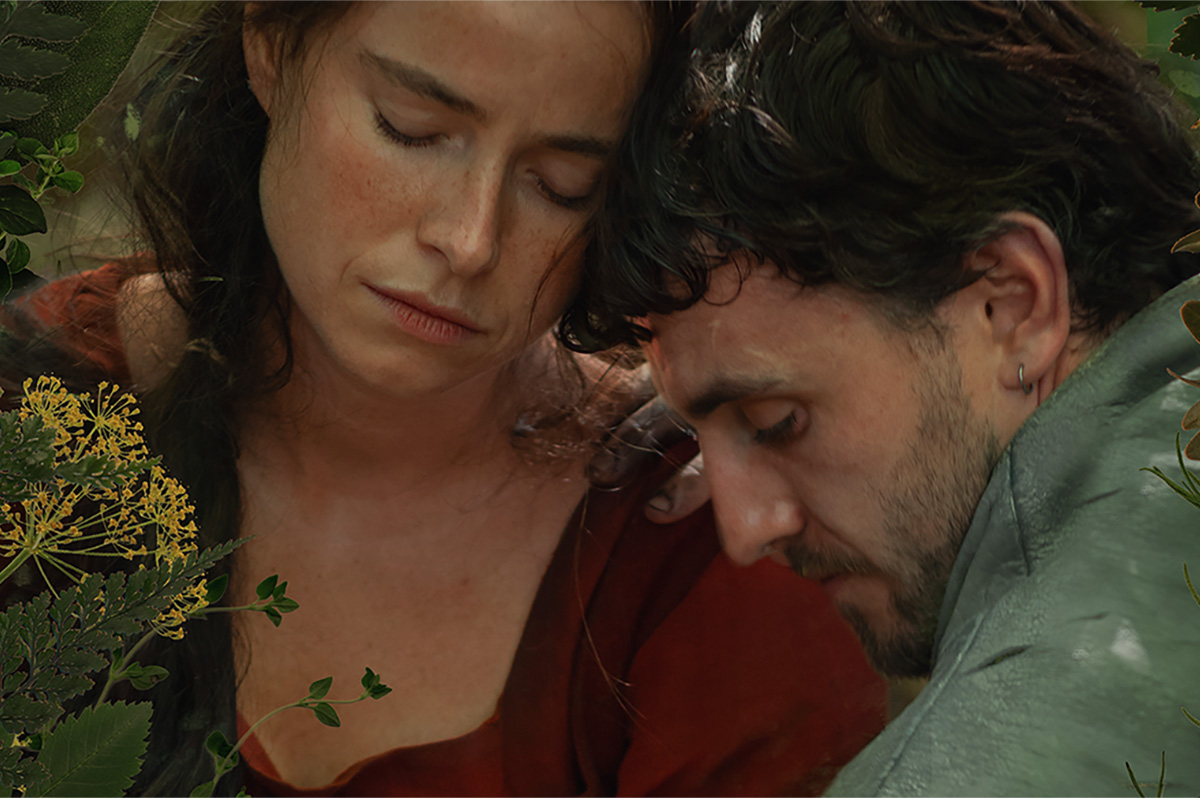
For every person who adores Shakespeare, there are probably a dozen more who wonder why.
We get it; his plays and poems, composed in a past when the predominant worldview was built around beliefs and ideologies that now feel as antiquated as the blend of poetry and prose in which he wrote them, can easily feel tied to social mores that are in direct opposition to our own, often reflecting the classist, sexist, and racist patriarchal dogma that continues to plague our world today. Why, then, should we still be so enthralled with him?
The answer to that question might be more eloquently expressed by Chloe Zhao’s “Hamnet” – now in wide release and already a winner in this year’s barely begun awards season – than through any explanation we could offer.
Adapted from the novel by Maggie O’Farrell (who co-wrote the screenplay with Zhao), it focuses its narrative on the relationship between Will Shakespeare (Paul Mescal) and his wife Agnes Hathaway (Jessie Buckley), who meet when the future playwright – working to pay off a debt for his abusive father – is still just a tutor helping the children of well-to-do families learn Latin. Enamored from afar at first sight, he woos his way into her life, and, convincing both of their families to approve the match (after she becomes pregnant with their first child), becomes her husband. More children follow – including Hamnet (Jacobi Jupe), a “surprise” twin boy to their second daughter – but, recognizing Will’s passion for writing and his frustration at being unable to follow it, Agnes encourages him to travel to London in order to immerse himself in his ambitions.
As the years go by, Agnes – aided by her mother-in-law (Emily Watson) and guided by the nature-centric pagan wisdom of her own deceased mother – raises the children while her husband, miles away, builds a successful career as the city’s most popular playwright. But when an outbreak of bubonic plague results in the death of 11-year-old Hamnet in Will’s absence, an emotional wedge is driven between them – especially when Agnes receives word that her husband’s latest play, titled “Hamlet,” an interchangeable equivalent to the name of their dead son, is about to debut on the London stage.
There is nothing, save the bare details of circumstance around the Shakespeare family, that can be called factual about the narrative told in “Hamnet.” Records of Shakespeare’s private life are sparse and short on context, largely limited to civic notations of fact – birth, marriage, and death announcements, legal documents, and other general records – that leave plenty of space in which to speculate about the personal nuance such mundane details might imply. What is known is that the Shakespeares lost their son, probably to plague, and that “Hamlet” – a play dominated by expressions of grief and existential musings about life and death – was written over the course of the next five years. Shakespearean scholars have filled in the blanks, and it’s hard to argue with their assumptions about the influence young Hamnet’s tragic death likely had over the creation of his father’s masterwork. What human being would not be haunted by such an event, and how could any artist could avoid channeling its impact into their work, not just for a time but for forever after?
In their screenplay, O’Farrell and Zhao imagine an Agnes Shakespeare (most records refer to her as “Anne” but her father’s will uses the name “Agnes”) who stands apart from the conventions of her town, born of a “wild woman” in the woods and raised in ancient traditions of mysticism and nature magic before being adopted into her well-off family, who presents a worthy match and an intellectual equal for the brilliantly passionate creator responsible for some of Western Civilization’s most enduring tales. They imagine a courtship that would have defied the customs of the time and a relationship that feels almost modern, grounded in a love and mutual respect that’s a far cry from most popular notions of what a 16th-century marriage might look like. More than that, they imagine that the devastating loss of a child – even in a time when the mortality rate for children was high – might create a rift between two parents who can only process their grief alone. And despite the fact that almost none of what O’Farrell and Zhao present to us can be seen, at best, as anything other than informed speculation, it all feels devastatingly true.
That’s the quality that “Hamnet” shares with the ever-popular Will Shakespeare; though it takes us into a past that feels as alien to us as if it took place upon a different planet, it evokes a connection to the simple experience of being human, which cuts through the differences in context. Just as the kings, heroes, and fools of Shakespeare’s plays express and embody the same emotional experiences that shape our own mundane modern lives, the film’s portrayal of these two real-life people torn apart by personal tragedy speaks directly to our own shared sense of loss – and it does so with an eloquence that, like Shakespeare’s, emerges from the story to make it feel as palpable as if their grief was our own.
Yes, the writing and direction – each bringing a powerfully feminine “voice” to the story – are key to the emotional impact of “Hamnet,” but it’s the performances of its stars that carry it to us. Mescal, once more proving himself a master at embodying the kind of vulnerable masculine tenderness that’s capable of melting our hearts, gives us an accessible Shakespeare, driven perhaps by a spark of genius yet deeply grounded in the tangible humanity that underscores the “everyman” sensibility that informs the man’s plays. But it’s Buckley’s movie, by a wide margin, and her bold, fierce, and deeply affecting performance gives voice to a powerful grief, a cry against the injustice and cruelty of what we fumblingly call “fate” that resonates deep within us and carries our own grief, over losses we’ve had and losses we know are yet to come, along with her on the journey to catharsis.
That’s the word – “catharsis” – that defines why Shakespeare (and by extension, “Hamnet”) still holds such power over the imagination of our human race all these centuries later. The circumstantial details of his stories, wrapped up in ancient ideologies that still haunt our cultural imagination, fall away in the face of the raw expression of humanity to which his characters give voice. When Hamlet asks “to be or not to be?,” he is not an old-world Danish Prince contemplating revenge against a traitor who murdered his father; he is Shakespeare himself, pondering the essential mystery of life and death, and he is us, too.
Likewise, the Agnes Shakespeare of “Hamnet” (masterfully enacted by Buckley) embodies all our own sorrows – past and future, real and imagined – and connects them to the well of human emotion from which we all must drink; it’s more powerful than we expect, and more cleansing than we imagine, and it makes Zhao’s exquisitely devastating movie into a touchstone for the ages.
We can’t presume to speak for Shakespeare, but we are pretty sure he would be pleased.
-

 National5 days ago
National5 days agoWhat to watch for in 2026: midterms, Supreme Court, and more
-

 Opinions5 days ago
Opinions5 days agoA reminder that Jan. 6 was ‘textbook terrorism’
-

 Colombia5 days ago
Colombia5 days agoClaudia López criticizes Trump over threats against Colombian president
-

 District of Columbia4 days ago
District of Columbia4 days agoImperial Court of Washington drag group has ‘dissolved’

